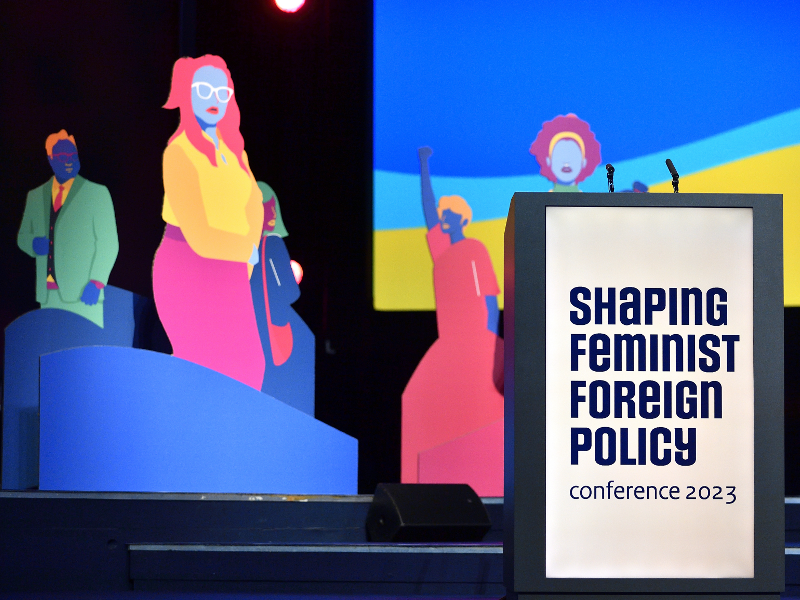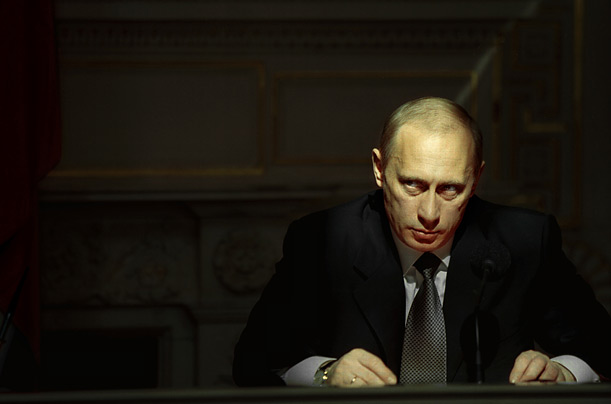VUCA.
An acronym commonly used by organizational leaders within the business environment has now become all too relevant in the context of international affairs.
V. Volatile.
U. Uncertain.
C. Complex.
A. Ambiguous.
This is the state that humanity currently finds itself in.
Ranging from realities such as increasing levels of political polarization to the rise of authoritarianism to violent armed conflicts, one thing is quite clear: global stability is balancing on the edge.
How, then, does society proceed forward to best navigate today’s turbulent landscape?
According to VUCA theory, surviving and thriving through moments of flux requires adaptability to changing circumstances and not being afraid to change course by pursuing new approaches.
As current headlines demonstrate, it is evident that maintaining the status quo is no longer working; ideologies of the past which may have once served their purpose are now only fueling the escalation of global threats. As such, it is time for the international community to consider a new approach for dealing with the changing world order. One grounded in a feminist perspective. Yes, feminist.
Feminist foreign policy is based on the central idea that when women and children are prioritized and safe in society, everyone benefits. While there is no definitive version of this approach to decision-making, feminist foreign policy provides an overarching framework for advancing gender equality and women’s rights, and promoting women, peace and security by prioritizing values such as inclusion, representation, equality and justice.
Standing firm in its commitment to non-violence, feminist foreign policy challenges the status quo of state security, and instead champions a human-centered approach to peace and security.
This article presents the case for placing feminist foreign policy at the forefront of the global agenda to re-establish order in today’s chaotic landscape. While it is not the intention of this article to provide an exhaustive analysis of feminist foreign policy as it relates to all threats currently impacting the global order, it aims to offer an introductory primer on how a feminist perspective can help society regain its footing. It does this by contrasting it to two previous approaches to maintaining peace, trust, and security which have contributed to unintended consequences: nuclear deterrence and increased military expenditure.
Where nuclear deterrence went wrong.
Nuclear deterrence theory refers to the idea of maintaining a nuclear arsenal to deter bad actors from launching an attack due to the promise of retaliation. Initially adopted by the US during the Cold War to prevent a nuclear attack by the Soviet Union, the concept has since become a fundamental component of NATO’s nuclear capability.
Although well intended to prevent nuclear warfare through mutually assured destruction, nuclear deterrence has unfortunately also propelled global tensions. The core of the problem lies in the fact that in order for nuclear deterrence to be an effective strategy, it requires actors to maintain an active and well-equipped nuclear arsenal. This reality has contributed to numerous close calls of accidental nuclear war, some of which have resulted in casualties. Moreover, today’s global arsenal of over 12,100 nuclear warheads has only increased the possibility of a nuclear war scenario and lasting catastrophic impacts, such as environmental devastation, radioactive fallout, and famine.
With nine powerful countries now holding nuclear capacity, the prevailing theory of nuclear deterrence has only fueled the possibility of existential risk.
A feminist approach to nuclear policy considers the impact of nuclear weapons from a gender perspective. For example, one study following the long-term health impacts of survivors of the 1945 nuclear attacks on Hiroshima and Nagasaki found that women were nearly twice as likely to develop and die from ionizing radiation than men due to gender-specific cancers. Moreover, following the Chernobyl nuclear disaster, women with children under the age of 18 living near the city displayed greater mental health impacts.
As demonstrated by these two examples, applying a feminist lens to nuclear deterrence reveals its shortcomings—that as long as nuclear weapons are present, negative ramifications are heightened.
This is where feminist foreign policy can help neutralize this threat to humanity—by challenging the prevailing doctrine that mutually assured destruction is the optimal strategy for ensuring safety. By unveiling the truth behind the curtain of nuclear politics, feminist foreign policy questions whether the game of nuclear deterrence should be played at all.
The downfall of military expenditure.
In response to prevailing conflicts in today’s geopolitical climate, global military spending hit a record high of $2.2 trillion last year, and is expected to continue to rise according to the Military Balance report which published these findings.
Dr. Bastian Giegerich, the Director-General of the institute behind the report remarked this unprecedented number as demonstrating today’s “deteriorating security landscape.”
Thus far, the narrative justifying military spending has been grounded in the premise of ensuring defence capacity and instilling a sense of security. However, despite increasing defence budgets, a state of global peace and security is nowhere near on the horizon. Instead, today’s wars only continue.
The shortcoming of increasing military expenditure is that it offers an outlet for continued warfare—which is counterproductive to an ultimate outcome of peace and security. This is where a feminist approach can provide an opportunity to challenge this traditional thinking, by introducing a human-centric lens to matters concerning security.
Feminist foreign policy calls for a human-rights based approach to armed interference, by upholding principles such as counting civilian casualties, prioritizing humanitarian assistance, and pursuing political solutions to end conflict.
While military intervention only augments the horrors of warfare, feminism steps in to shed light to the fact that fighting fire with fire does not pose the answer.
Embracing feminism.
This article aimed to plant a seed for why pursuing a feminist approach is needed now, more than ever, as a necessary pathway to navigating the fraying world order. By comparing it to two traditional strategies for addressing threats to society, nuclear deterrence and military spending, it highlighted shortcomings of the status quo approaches.
To date, feminist foreign policy is still a relatively novel mechanism, only embraced by a handful of countries, including Canada which adopted a Feminist International Assistance Policy in 2017 to advance gender equality. However, as an ever-growing trend with room for improvement in application, it is in a unique position to co-evolve with the needs of the pressing moment, offering an invaluable pathway for the international community to regain control of today’s VUCA-driven environment.
Photo: Shaping Feminist Foreign Policy Conference 2023 (2023) by Ministerie van Buitenlandse Zaken, CC BY-SA 2.0, via Wikimedia Commons
Disclaimer: Any views or opinions expressed in articles are solely those of the author and do not necessarily represent the views of the NATO Association of Canada.




